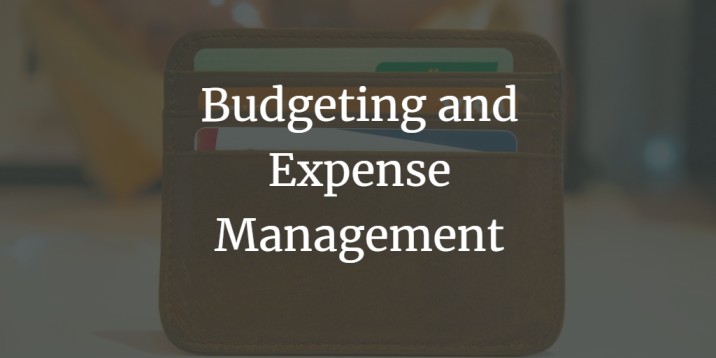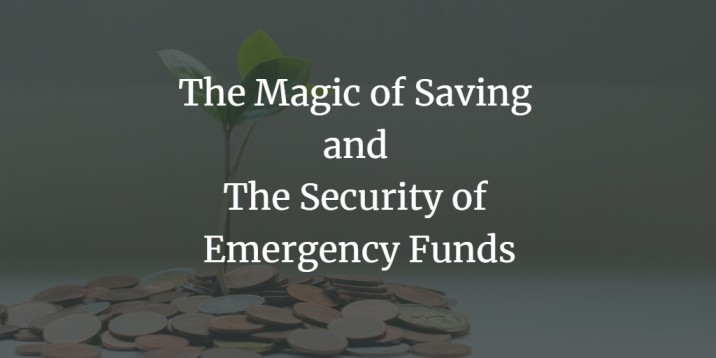Hello, and welcome to the next post of our financial expedition tailored for professionals who want to improve their financial health. In this segment, we’ll explore a fundamental aspect of personal finance that holds the key to your financial well-being: budgeting and managing your expenses. Don’t worry; we’re here to simplify the process and even introduce you to some handy tools and apps that will make this journey more manageable.
Let’s picture your money as a ship in an ocean, and your goals are like the cool islands you want to reach. Just as sailors plan their trips carefully, with maps and resources, you need to plan your money. This is where budgeting and managing expenses come in. So let’s understand why budgeting and expense management are important, how to do it, and some cool tools that make it easier.
The Art of Budgeting
The most important fundamental of personal finance is to have a Budget. This is like the first step towards your financial journey. A budget is a way to keep track of your spending so that you can make sure that it’s not going out of control. It also helps you reach your goals and live a happier life. Budgeting may sound daunting but think of it as creating a financial game plan. Just as you plan your coding projects to meet deadlines, a budget helps you manage your money effectively. Here’s why it’s essential:
Financial Direction: A budget gives you a clear picture of where your money comes from and where it’s going. It’s your financial roadmap. Think of a budget like a map for your money. Just as a map shows you where you are and where you want to go, a budget shows you how much money you have and where it needs to go. It helps you plan where to spend and save, making sure you stay on track with your financial journey.
Expense Control: It helps you control your spending, avoid debt, and stay on track to meet your financial goals. Imagine your money is like a race car, and your budget is the steering wheel. Your budget helps you control the speed and direction of your spending. It prevents you from going too fast and crashing into debt. With a budget, you decide how much to spend on different things, which helps you avoid spending too much on things you don’t really need. It’s like having brakes on your spending, so you don’t go overboard.
Emergency Preparedness: With a budget, you’ll be better equipped to handle unexpected expenses and build an emergency fund. Life can be full of surprises, like a sudden rainstorm during a picnic. Your budget can act as your financial umbrella. It helps you set aside some money for unexpected situations, like car repairs, medical bills, or other emergencies. This emergency fund is like having a savings cushion that protects you when unexpected expenses pop up. It gives you peace of mind, knowing you’re prepared for life’s surprises.
So, how do you start budgeting? It’s not as complicated as it might seem.
-
Calculate Your Income: Begin by determining your total income. This includes your salary, any side income, or freelance work. You should have in mind how much money you have to work with.
-
List Your Expenses: Make a list of all your monthly expenses. This includes rent or mortgage, utilities, groceries, transportation, insurance, and entertainment. Be thorough; don’t leave anything out.
-
Categorize Your Expenses: Divide your expenses into fixed (those that stay the same every month) and variable (those that can change, like groceries or entertainment).
-
Set Spending Limits: Create spending limits for each category. This is where you decide how much you’re willing to allocate to each expense.
-
Track Your Spending: As the month progresses, keep a record of your expenses. You can do this manually in a notebook or use budgeting apps and tools (we’ll get to those shortly).
-
Review and Adjust: At the end of the month, review your spending. Did you stay within your budget? If not, identify areas where you overspent and make adjustments for the following month.
Practical Strategies for Tracking and Managing Expenses
Managing your expenses effectively is the key to staying within your budget. Here are some practical strategies to help you with this:
-
Use Envelopes or Digital Categories: Allocate cash or create digital categories for your spending. When the money in a category is gone, it’s time to stop spending on that particular item.
-
Automate Savings: Set up automatic transfers to your savings and investment accounts. Treat your savings as a non-negotiable expense.
-
Use the 50/30/20 Rule: Allocate 50% of your income to necessities (like rent and groceries), 30% to wants (like dining out or entertainment), and 20% to savings or paying off debt.
-
Track Every Expense: Keep track of every rupee you spend. It’s easy to overlook small purchases, but they can add up quickly.
Some Budgeting Tools and Apps
In the digital age, budgeting is made simpler with various tools and apps designed to streamline the process. Here are some budgeting tools and apps suitable for Indians are:
-
Walnut: A popular expense tracker app in India, Walnut links to your bank accounts and categorizes your expenses automatically.
-
Yono by SBI: If you’re an SBI customer, Yono provides budgeting features, including tracking expenses and setting financial goals.
-
Money Lover: This user-friendly app allows you to track expenses, set budgets, and view reports in multiple languages, including Hindi.
-
ETMONEY: ETMONEY is a comprehensive app for tracking expenses, investing in mutual funds, and managing insurance.
Budgeting and expense management might require a bit of effort, but they are fundamental to securing your financial future. Like writing efficient code, it’s about precision, planning, and tracking your progress. So, start your budgeting journey today and pave the way for financial success!
 Gopesh Sharma
Gopesh Sharma 
 The Power of Setting Clear Financial Goals
The Power of Setting Clear Financial Goals